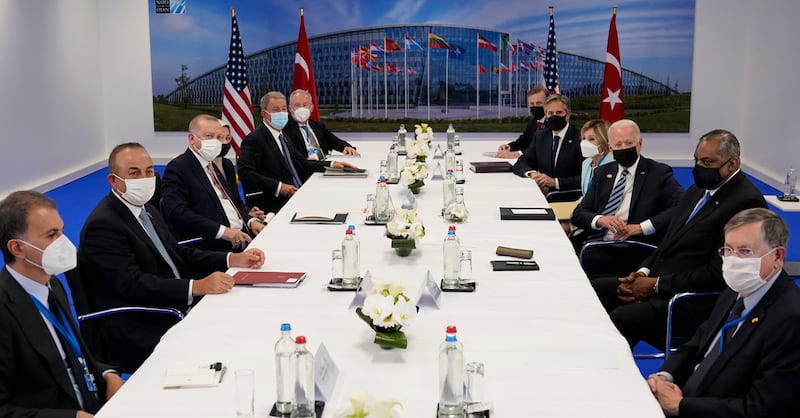NATO leaders met Monday in Brussels, Belgium, at their annual summit. This year’s summit was highly anticipated as it was Joe Biden’s first since becoming president of the United States, reports The New York Times.
Biden’s explicit support for NATO differs drastically from former President Donald Trump who pushed against the alliance, according to CNN.
- The North Atlantic Treaty Organization, known as NATO, is a political and military alliance between 30 North American and European countries, said BBC.
- All NATO states agree to provide collective defense such that attacking one member state means attacking all member states, said CNN.
This year’s NATO summit included four major developments.
China presents ‘challenges’
NATO officially acknowledged the growing political, economic and military influence of China as “presenting challenges,” reported The New York Times. For the first time ever, the alliance portrayed China in a potentially confrontational way.
- China’s “stated ambitions and assertive behavior present systemic challenges to the rules-based international order and to areas relevant to Alliance security. We remain concerned with China’s frequent lack of transparency and use of disinformation,” read NATO’s final statement, per CNN.
NATO did not call China a threat but characterized the country as a growing concern, said The New York Times. The alliance intends to maintain “a constructive dialogue with China where possible.”
NATO considers Russia to be a ‘threat’ to security
The final statement from NATO asserted that “Russia’s aggressive actions constitute a threat to Euro-Atlantic security,” per CNN. However, NATO formally calling Russia a “threat” is not surprising, reported The New York Times.
NATO leaders support pulling troops from Afghanistan
So far, NATO’s collective defense clause has only been invoked once by the U.S. following 9/11. Now, 20 years later, the alliance unanimously supports withdrawing troops from Afghanistan, reported BBC.
- NATO will now focus on practical ways to maintain security in Afghanistan such as maintaining embassy presence, providing security training, supporting counterterrorism efforts and issuing economic aid, said CNN.
Turkey will keep troops in Afghanistan to safeguard the international airport in Kabul which NATO recognizes as important for “enduring diplomatic and international presence, as well as to Afghanistan’s connectivity with the world,” per BBC.
Cyberattacks and space attacks qualify for collective defense
NATO leaders have officially recognized attacks in outer space and cyberspace as qualifying for collective defense, reported NBC News. This change comes as alliance leaders grow increasingly concerned about China’s and Russia’s aggressive actions in space.
- Previously, the collective defense clause has only applied to traditional military areas of land, sea, and air, reported NBC News.
Outer space attacks primarily refers to interference with NATO country satellites that support military navigation, communication and missile launch detection, said NBC News.

